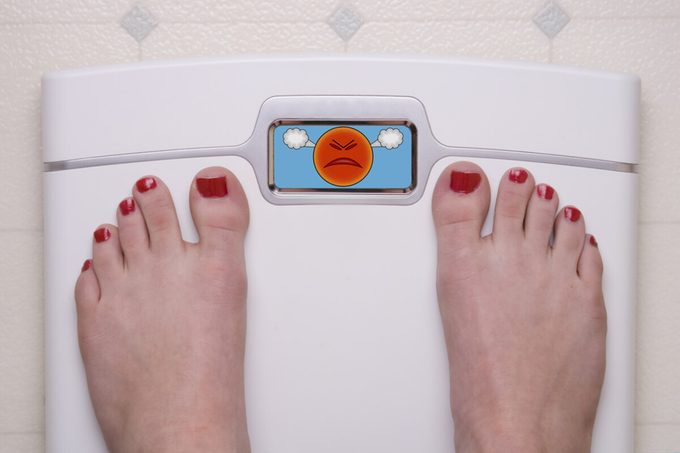 Gustation of Home
Gustation of Home
Asian Chicken Rice Basin
This super flavorful, food-packed dish makes use of supermarket conveniences like coleslaw mix and rotisserie chicken. This recipe is easily doubled or tripled for large families. —Christianna Gozzi, Asteria, New York
Become Recipe

Lemon-Dijon Pork Sail-Pan Supper
Most nights I demand something that I can get on the table with minimal try and delicious results. This sail-pan supper has become an all-fourth dimension favorite, not only because of its brilliant flavors but as well because of its speedy cleanup time. —Elisabeth Larsen, Pleasant Grove, Utah

Simple Grilled Steak Fajitas
Afterwards moving to a new state with ii toddlers in tow, I came upward with effortless fajitas. They make an easy weeknight repast on the grill or in a cast-iron skillet. —Shannen Mahoney, Odessa, Missouri

Weeknight Chicken Chop Suey
If you'd like a picayune actress crunch with this colorful chop suey, serve with chow mein noddles. —George Utley, South Hill, Virginia

California Burger Wraps
I beloved the style these fresh flavors alloy. It's a snap to throw these wraps together for a quick, salubrious lunch. The burgers can as well exist served on buns if you lot like. —Rachelle McCalla, Atlantic, Iowa

Pesto Corn Salad with Shrimp
This recipe showcases the beautiful bounty of summer with its fresh corn, tomatoes and delicious basil. Forestall browning by spritzing the salad with lemon juice. —Deena Bowen, Chico, California

Grilled Pineapple Chimichurri Chicken
Classic chimichurri gets a Hawaiian twist thank you to pineapple and macadamia basics. For a spicier version, substitute red serrano pepper for the bell pepper. —Naylet LaRochelle, Miami, Florida

Hawaiian Pork Chops
Looking for a great last-minute repast when friends drop in? Hampton, Virginia'due south Michelle Cavalier recommends one of her hubby'southward sweetness-and-sour favorites. "This is so piece of cake, tastes merely like Hawaiian pizza, and I usually accept all ingredients on hand."

Pesto Vegetable Pizza
My family unit loves pizza, just we rarely have it delivered since I created this fresh and flavorful version. Ever a winner in my firm, it is a fast and delicious repast that fifty-fifty my young son looks forward to. --Kate Selner of Lino Lakes, Minnesota.

Spinach Quesadillas
My family gave these cheesy quesadillas oohs and aahs. Remove the spinach from the oestrus as soon as it wilts so it keeps a picayune bit of crisis. —Pam Kaiser, Mansfield, Missouri

Ginger Salmon with Green Beans
I developed this flavor-packed dinner for a decorated friend who wants to swallow clean. —Nicole Stevens, Austin, Texas

Pork Chops with Nectarine Salsa
My special pork dish has and so much flavor and is a snap to gear up. A sweet, fruity salsa perfectly balances the spicy rub that coats the pan-fried chops. —Bonnie Bufford, Nicholson, Pennsylvania

Ruby-red Pepper & Parmesan Tilapia
My husband and I are e'er looking for light fish recipes because of their wellness benefits. This Parmesan tilapia is a hit with him, and nosotros've served it at dinner parties, also. It'southward a staple! —Michelle Martin, Durham, North Carolina
Healthier-than-Egg Rolls
Frying anything at home is a trivial intimidating for me, but I love egg rolls. With this recipe, I've figured out a way to become the best part of the eggroll—without the mess. If you prefer a traditional egg rolls made with wrappers, yous can use this every bit the filling! —Sue Mitchell, Leakey, Texas

Herbed Balsamic Craven
Our kitchen is tiny and cramped, so nosotros try to grill elementary (but tasty) meals outside equally often as possible during the summertime months. Dried herbs piece of work as well, merely during the summer use fresh herbs for the best gustation. —Kelly Evans, Denton, Texas

Spaghetti & Meatball Skillet Supper
I developed this one-skillet spaghetti and meatball dish to cut downward on cooking fourth dimension on busy nights. The beans, artichokes and tomatoes bump up the diet factor, while the lemon and parsley arrive pop with brightness. —Roxanne Chan, Albany, California

Mediterranean Pork and Orzo
On a really busy mean solar day, this repast in a bowl is ane of my height picks. It's quick to put together, leaving a lot more time to relax at the table. —Mary Relyea, Canastota, New York

Feta-Dill Chicken Burgers
I found fresh ground chicken at the butcher and gave it a whirl on our new grill. The event is these saucy burgers. Everybody went nuts—including my sister-in-law, an astonishing cook! —Wendy Boughton, Victoria, British Columbia

Creamy Pasta Primavera
When I think of springtime, asparagus comes to listen. This pasta dish is a wonderful blend of tender, crisp, colorful vegetables and a creamy Parmesan cheese sauce. —Darlene Brenden, Salem, Oregon
Pasta lovers, listen up! You'll honey these healthy pasta sauce recipes, too.

Craven Thighs with Shallots & Spinach
What could be better than an entree that comes with its own creamy vegetable side? This healthy supper goes together in no time flat and makes an center-catching presentation. —Genna Johannes, Wrightstown, Wisconsin

Fresh Corn and Tomato Fettuccine
This recipe combines delicious whole wheat pasta with the best of fresh garden produce. It'due south tossed with heart-healthy olive oil, and a little feta cheese gives it seize with teeth. —Angela Spengler, Tampa, Florida

Beef & Spinach Lo Mein
If you like a good stir-fry, this beefiness and spinach lo mein will definitely satisfy. I discovered the recipe at an international luncheon, and information technology's at present a favorite get-to meal. —Denise Patterson, Bainbridge, Ohio
Bruschetta Steak
My married man and I beloved bruschetta, especially in the summer with fresh tomatoes and herbs from our garden. —Kristy Even so, Broken Pointer, Oklahoma

Pork Chops with Honey-Garlic Sauce
The sauce on these dearest garlic pork chops is so good, I sometimes double information technology so there'southward extra for dipping whatever veggie we accept on the side. —Michelle Smith, Eldersburg, Maryland
Grilled Garden Veggie Pizza
Pile on the veggies—the crisp, grilled chaff tin take it! This colorful, salubrious pizza looks every bit fresh equally it tastes. —Diane Halferty, Corpus Christi, Texas

Pizza in a Bowl
On busy days, it's a comfort to know that my family tin can sit down to dinner minutes later on we walk in the door. Double information technology to wow at a potluck. This recipe works in a slow cooker, besides. —Virginia Krites, Cridersville, Ohio

Naked Fish Tacos
This is one of my husband's all-time favorite meals. I've even converted some friends to fish later eating this. I serve information technology with fresh melon when it's in season to residual the subtle heat of the cabbage mixture. —Elizabeth Bramkamp, Gig Harbor, Washington

Shrimp with Warm German language-Style Coleslaw
We dear anything that is tangy or has bacon. With fennel and tarragon, this is a super savory dish. I employ the medley from Minute Rice if I don't have time to brand my ain. —Ann Sheehy, Lawrence, Massachusetts

Craven Tacos with Avocado Salsa
A few people in my family have special dietary needs, but luckily, these chicken tacos work for all of us. I toss up a unproblematic greenish salad and have a meal we can all enjoy together. —Christine Schenher, Exeter, California

Shrimp Orzo with Feta
Tender, hearty and flavorful, this recipe is i of my favorites! Garlic and a splash of lemon add to the fresh sense of taste and centre-healthy benefits of shrimp. —Sarah Hummel, Moon Township, Pennsylvania

Skillet Beef Tamales
I constitute something similar to this years ago and take recently added my own spin. Here's the outcome: an piece of cake, cheesy meal your family can't get enough of. We don't accept to tell them it's salubrious. —Deborah Williams, Peoria, Arizona
Curried Shrimp Pasta
his lite and spicy shrimp dish comes together easily. My favorite pasta to use is capellini, simply angel pilus works fine if it isn't available. —Thomas Faglon, Somerset, New Bailiwick of jersey
Southwestern Pineapple Pork Chops
This quick entree will instantly ship you to the Southwest. Salsa plays lively counterpoint to the juicy pineapple-sweetened pork chops.—Lisa Varner, El Paso, Texas

Lemon-Parsley Tilapia
I like to include seafood in our weekly dinner rotation but don't want to bother with annihilation complicated (and it had improve taste good or the family will anarchism). This herbed fish does the fob. —Trisha Kruse, Hawkeye, Idaho
Grilled Chicken and Mango Skewers
The inspiration for this recipe came from the charbroiled chicken skewers I used to enjoy while strolling along Calle Ocho in Miami on Sunday afternoons. Feel gratuitous to garnish them with sesame seeds or spritz them with fresh lime juice. —Wolfgang Hanau, West Palm Beach, Florida
Upwards Next: Filled to the brim with flavorful ingredients, these easy healthy soup recipes will keep you lot on track.






























0 Response to "The Real Reason You Can't Keep the Weight Off—and It's Not Willpower"
Post a Comment